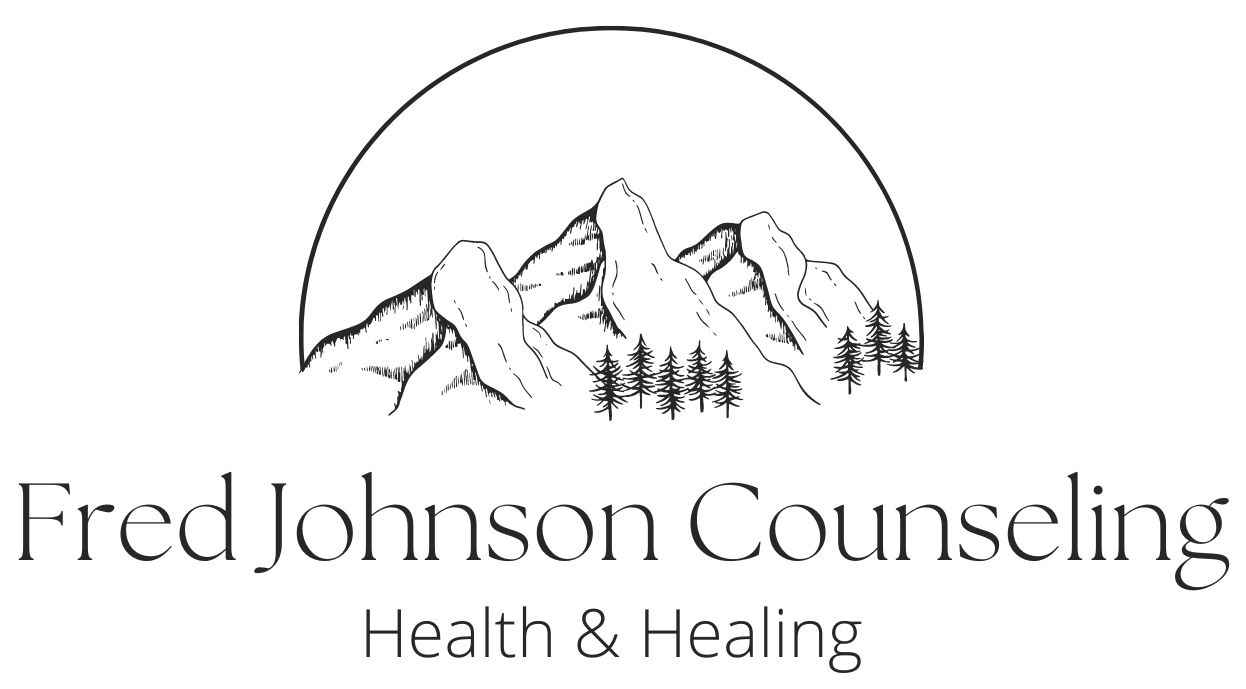Celebrating Mental Health Growth
Fred Johnson • May 1, 2024
A win is a win. No matter the struggle.
In our ever-increasingly-paced world, progress and victories in our mental health and wellbeing is often overlooked and minimized. Yet, our journey towards mental health wellness is one of personal measure. It is a journey marked by seasons of challenge, self-discovery, and an increasing inner strength. Taking a moment to celebrate our progress and growth is not only important, but also vital to continued growth. The greatest gift we may give ourselves in the pursuit of wellbeing, is the recognition and celebration of mental health growth.
Here's some guiding ideas on how to celebrate mental health growth in yourself:
- Reflect on Your Progress: Take a moment to reflect on how far you've come. Consider the challenges you've faced and the obstacles you've overcome. Keeping a journal can be a helpful way to track your growth and reflect on your journey.
- Celebrate Milestones: Similar to celebrating a career milestone or achieving a personal fitness goal, celebrate your mental health milestones! Completing a therapy session, trying a new coping strategy, or simply getting through a difficult week, each step forward is worthy of recognition and celebration! Treat yourself to something special or engage in an activity that brings you joy to mark the occasion.
- Share Your Story: Sharing your journey of mental health growth can be empowering both for yourself and others. Usually this can help reduce stigma around mental health and provides a genuine connection between yourself and someone you trust. However you may choose to share your story, know that your voice has the power to inspire and uplift others.
- Practice Self-Compassion: Be gentle with yourself and recognize that healing is a nonlinear process. There will be ups and downs along the way, and it's okay to embrace both the triumphs and the setbacks as part of your journey. If it was easy, everyone would do it! It takes brave and resilient individuals to look inward with a willingness to grow.
One of my favorite running coach phrases I’ve heard along the ways is, “It never gets easier, you just get better.” Life – health - mental wellness journeys, all are challenging and difficult. If you can learn to celebrate your growth and strength, you will get better. Be kind to yourself. Celebrate every percentile of growth you experience in your mental health. You’re the only one of you and that is special.
.

Most of us don’t want to admit it, but the arrival of October signals the official start to the holiday season. Within the next 91 days, there will be everything from spooky lanterns, stuffed turkeys, and sales catalogues arriving in the mail or inbox on the regular. Parties to attend, events to support, and special “once a year” gatherings will all demand our focus and presence. One thing is for certain, If you’re of adult age with even a mild case of responsibility, you will begin to experience what I call, “Holiday Time-Slippage.” Holiday Time-Slippage is the phenomenon wherein the busier and faster our lives become during the holidays, the less time we have to enjoy the holidays. In trying to do it all, we miss all that we do. Ok, I’ll admit I made that up. I even googled it to see if it was a thing. It’s not. Perhaps I just made it a thing, but more likely it is just a fun play on words that ends with this blog post. In either case, I think it’s important to be mindful of the changing of the seasons and what those signals for many. The 16th century produced a carol of Welsh origin we now know as “Deck the Halls.” Within the lyrics, the phrase “‘Tis the season” has become a popular connotation of the holidays in general. Sometimes we use it as a greeting, coping phrase, or in an excusing manner, because after all, “’Tis the season, right?” What we miss in doing so, is the instructive reply the original lyric provides: “… to be jolly.” To experience a cheerful and happy time. In talking with people daily about their lives, I am reminded that not everyone enters this season with the hope of joy and jolly nature. Life can be hard. Holidays can bring triggers, those sharp painful reminders. The holiday seasons can be an extremely isolating time for many. We need the care of each other in these times. We need connection. We need people in our life who will laugh and love, who will share a moment. Maybe you are the person able to provide that for another. Maybe you’re the person who needs that. If I can remind and encourage you today, that in all your seasons upcoming, allow time to simply be jolly.

Each year, on the first day of August, I remind myself that we are closer to the end of the month than ever before. Each day after, as sweltering humid heat swarms us here in the south, I am reminded that it is now one day closer to the sweet relief of fall temperatures. I’m not sure how I would fair, if by chance, I believed the rampant heat waves of August would never leave. Thankfully, I know seasons come and seasons go. The dreaded drudgery of a hellacious August will soon be gone. The expounding beauty of fall, with leaves changing and cool breezes blowing, will soon arrive. Admittedly, this confession of seasonal distaste is a bit melodramatic. Yet, it serves as a practical example of what is known as “tolerable” stress and an adaptive coping response. Types of stress vary, but the three main categories are “good/positive”, “tolerable”, and “toxic” (1). These categories are not concrete or strictly defined by rules and circumstance necessarily. What is “good” stress for one person, may be “toxic” for another. Throughout our lives, the same stressors can change categories multiple times. Stress levels depend on the degree to which a person perceives control over a stressor or situation and whether they have support systems or resources in place to handle the stressor over their lifespan (2). A flat tire one day may be nothing other than a slight inconvenience. Yet on another day, it may represent all the uncontrollable forces keeping you from arriving on time to an important job interview. An easier way of saying all of this is, when we lose our sense of being (ability to control or make decisions) to a circumstance, we are a susceptible to toxic stress. This is where endurance comes in. I would love to say there is short and simple method to reduce and mitigate all toxic stress in our lives. Unfortunately, this just isn’t so. It doesn’t need to be. Because life, people, the world we live in, are all super complicated. What is important and hopeful: the effects of chronic/toxic stress in the brain and body are responsive to recovery and healing. Let’s talk about endurance as a helper for stress. Endurance, or the ability to withstand hardship or adversity, can be a simple, but effective tool to transition from toxic stress to tolerable stress. Enduring is a mindset of “thriving despite”. Thriving despite the terrible. Living beyond the hurt or difficulty. Healing to be able to accept good again. The difference in the stress types is significant. Remember that our perception plays a major role in which is which. Positive/good stress: normal life challenges such as receiving a promotion, learning a new skill, exercise, or having a child. Here we are allowed goals, enjoy success, and try new things. Choice remains in these. Tolerable stress is usually non-normative. Examples are loss of a loved one, serious illness, or natural disasters. There is a sense of unfairness in this. Often the choice to feel good is removed or feels wrong to do so. Our choice is questioned here. Toxic stress is typical adverse and inappropriate. Over time it can carry heavy physical and psychological consequences. All of life is darkened by this. Seeing good is tinted by what we have been through or currently in. We usually feel there is no choice in these. Abuse, intimate partner violence, Determining in our mind, to endure, withstand, and survive a critically difficult situation can move us from toxic stress to the tolerable type, then eventually the good type of stress. Living to allow good again. If ever there was a sentence that embodied the old phrase, “easier said than done” ---- that one was it. Tragically, it seems toxic stress only makes us good at surviving trauma or the terrible. It limits our ability to enjoy or even to see the beauty in a moment. The healing process allows us to be more human than before toxic stress skewed our view of the world. Talking with a counselor can be a critical part of healing. I hope that perhaps today in reading this, you’ve found a tool to help enduring despite what you’re up against. Notes: 1. https://center.uoregon.edu/StartingStrong/uploads/STARTINGSTRONG2016/HANDOUTS/KEY_49962/TypesofStress.pdf 2. https://www.ncbi.nlm.nih.gov/pmc/articles/PMC2864527/

